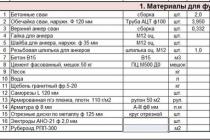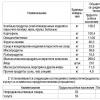According to the framework agreement on energy cooperation signed at the end of January, Russia will receive the exclusive right to extract gas and oil in Syria.
The agreement goes far beyond agreements that describe the terms of cooperation in the field of repair and restoration of drilling rigs and production infrastructure. The Russians will also train a new generation of Syrian oil workers and provide energy consulting. Thanks to this step, Moscow will be able to strengthen its position in the Middle East.
Due to the ongoing war since 2011, the Syrian energy sector has fallen into disrepair. Local refineries are in need of a massive upgrade. Before the war, their capacity was 250 thousand barrels per day, now it has halved. As long as the embargo imposed by the EU is in effect, Syria cannot count on the support of European companies in Syria. Neither Brussels nor Washington will lift the ban on the import of Syrian hydrocarbons for political reasons: the military operations that have been going on for more than six years have not led to regime change, Bashar al-Assad remains in power, who is accused of using chemical weapons and other crimes.
Russia, Iran and Syria
Countries that could help the Syrians rebuild the oil and gas sector are Russia and Iran. According to agreements signed in September last year, Iranian companies were supposed to launch Syrian oil refineries and restore destroyed energy networks. The front of work is very large: it will be necessary to launch new projects on land and at sea, to upgrade outdated equipment. In doing so, it should be taken into account that domestic demand on hydrocarbons will grow, since additional energy capacities will be needed to restore the economy destroyed by the war. Obviously, without help from outside Syria, it will not be possible to quickly breathe into the mining sector new life.
Tehran was counting on the emergence of an Iran-Venezuela-Syria consortium that could put these plans into practice, but due to serious economic problems that have arisen near Caracas, we will have to look for other solutions. At the moment, the Iranian Revolutionary Guard Corps has succeeded in achieving one of its goals - to take control of the Syrian telecommunications sector.
Russia, against which European and American sanctions continue to operate, is not afraid of restrictive measures: it has long learned how to successfully cope with them. The steps taken by the Kremlin indicate that it intends to achieve a dominant position in this part of the world. His long-term strategy appears to include rebuilding the Syrian oil and gas sector.
In 2015, the International Monetary Fund estimated that $27 billion would have to be spent on this goal, but according to the latest data, the figure has increased to $35-40 billion. This money will be needed to restore the entire infrastructure (pipelines, pumping stations, and so on), which can only be restarted after repairs have been made. For political reasons, the process will not affect the northern provinces occupied by the Syrian Kurds, where there are large oil fields. The future of deposits (including the largest one, Al-Omar) in territories controlled by forces that enjoy the support of the West, and not the Syrian army, also remains unclear.
Who will produce oil and gas in Syria?
It is still unknown which Russian company will be involved in the restoration of the Syrian energy sector. In the first four years of the war, Soyuzneftegaz worked in Syria, but in 2015 he decided to leave this country. Another candidate is Tatneft, which develops oil and gas fields in Tatarstan. Syria was one of the first countries where this Russian company tried its hand at the international market, so when favorable conditions appear, it will want to return there. In addition, there are chances that such state giants as Rosneft and Gazpromneft will decide to join their competitor.
In 2002, Syria produced 677,000 barrels of oil per day. Before the beginning civil war this figure was 380 thousand barrels, and now it has fallen to the level of 14-15 thousand barrels. The decline in gas production was not as significant due to the important role that this raw material plays in the Syrian economy: 90% of the blue gold mined in the country is used to generate electricity. AT pre-war period the volume of production reached 8 billion cubic meters per year, now it is 3.5 billion cubic meters.

Before the war, Syrian oil was mainly exported to Europe, this was facilitated by the country's geographical location and the fact that European companies such as Shell and Total were the main players in this sector of the Syrian economy. Since the European ban on the supply of Syrian oil continues to operate, the new owner of the production infrastructure will have to find new markets for Syrian hydrocarbons. In this context, it seems logical to focus on the countries of the region: Turkey or Lebanon.
From an economic point of view, it is more profitable for Russia to take control of gas fields. Gas is the main raw material for electricity generation in Syria, which means that domestic market demand for it will remain stable. In addition, there is a high probability that there is a field on the Syrian continental shelf in the eastern Mediterranean Sea that is not inferior in terms of reserves to the Zohr, Leviathan and Aphrodite fields.
The goal is a dominant position in the region
Moscow is seeking to consolidate its position in Southwest Asia. Rosneft and Gazprom Neft are operating in Iraqi Kurdistan, Eastern countries in the Mediterranean basin, Novatek is engaged in gas production from offshore fields. Oil and gas are not only energy resources. First of all, they are needed by the chemical industry for the manufacture of ubiquitous plastics, lubricants, pesticides, medicines, as well as for obtaining a variety of substances necessary for the production of other materials and products, including chemical fertilizers. Modern man can't imagine life without it all.
If Russia manages to take control of the Syrian fields, it will receive a non-military instrument of influence on international politics and will be able to influence OPEC more effectively. The Kremlin is ready to direct a lot of resources, both financial, intellectual and human, to satisfy its geopolitical ambitions.
Subscribe to us
The war in Syria is actually being waged for the most advantageous positions in terms of supplying Middle Eastern energy resources to Europe, writes Deutsche Wirtschafts Nachrichten. Intense fighting is unfolding exactly where the most important oil and gas pipelines pass or should pass. At the same time, Russia seeks to prevent the development of pro-Western routes, and the United States seeks to prevent the implementation of Russian interests in this area.

If you look closely at the war in Syria, it becomes clear that military operations are carried out only in those areas where important oil pipelines pass or are planned, writes Deutsche Wirtschafts Nachrichten. According to the publication, Russia, Western powers and the Gulf countries are fighting for the best positions for gas and oil supplies to the European market.
Two major market oil is located in the Syrian cities of Manbij and Al-Bab in the province of Aleppo, the article notes. Two significant oil pipelines pass through their territory, which supply oil from Iraq to Syria, up to the province of Idlib. In the west, it also passes through Aleppo, according to the publication.
Whoever controls Manbij has a lot of influence over oil transportation in Syria, Deutsche Wirtschafts Nachrichten claims. This also applies to cities such as Aleppo, Idlib and Al-Bab in the west of the country. The same oil pipeline that passes through these settlements stretches in the east of the country through Raqqa and Deir ez-Zor, the publication emphasizes. This oil pipeline delivers oil to Syria from Iraqi Mosul.
As noted in the article, so far Turkey in the Syrian conflict could not influence the oil pipelines. However, in the event of the capture of Manbij, Ankara may gain influence on the oil pipeline systems in Syria, the publication assures.
The ongoing battle for Aleppo is called decisive only because Aleppo is the last Big City, through which the most important oil pipeline in the country passes, emphasizes Deutsche Wirtschafts Nachrichten. "Whoever controls Aleppo controls the 'key' to the oil pipeline"- writes the publication. At the same time, readers' attention is drawn to the fact that especially intense battles between the conflicting parties are unfolding precisely in those cities of Syria through which this most important oil pipeline passes, or in areas where it is planned to create a gas pipeline between Qatar and Turkey.
As noted in the article, Russia, in turn, supports the construction of a gas pipeline from Iran through Iraq and Syria (it should pass through the Syrian Homs) - therefore, from the Russian point of view, this city should not fall under the control of Islamic militants.
US airstrikes are concentrated primarily in the eastern part of the country, while Russian airstrikes are carried out mainly in the western part of Syria. It is important for Russia to control the western regions in order to interfere with plans to build pro-Western oil and gas pipelines. At the same time, it is important for the United States to prevent plans for the construction of pro-Russian gas pipelines, the publication explains.
In addition, there is a gas pipeline project that should connect Israel and Turkey through Damascus. Given the fall of the government in Damascus, this gas pipeline would allow Israel to improve its position as a gas supplier, but Russia does not want competitors in this area, Deutsche Wirtschafts Nachrichten notes.
As the Kafkassam Center for Strategic Studies in Ankara explains, the attempt to build a “Kurdish corridor” in Syria is also connected with the desire to control the most important oil and gas pipeline routes. . “The true purpose of this corridor is to transport Kurdish oil and gas from northern Iraq through northern Syria to the Mediterranean,” Center analysts report. They note that “The US has planned to build a new oil and gas pipeline from the Persian Gulf to northern Iraq and from there further through northern Syria. Thus, Iraqi oil should be delivered through Turkey and northern Syria to the West and, first of all, to the energy market in Europe.”.
However, this plan to create a “Kurdish corridor” failed because Russia intervened in Syrian events, researchers at the Kafkassam Center in the Turkish capital emphasize. . "Russia is against this corridor because it wants to keep Europe as a client," buying Russian energy resources, is explained in the article. “Russia under no circumstances will give up its positions on European market», - Analysts of the research center in Ankara are sure.
source Deutsche Wirtschafts Nachrichten Germany Europe tags- 03:00
Parking on all streets of Moscow, including areas with increased rates, will be free from March 8 to March 9.
- 03:00
The number of victims of a new coronavirus infection COVID-19 in China has risen to 3097.
- 03:00
The representative office of the self-proclaimed DPR at the Joint Center for Control and Coordination of the Ceasefire (JCCC) called the return of Ukrainian security forces to positions near the disengagement area near Petrovsky in the Donbass a provocation.
- 03:00
Those who fell ill with a new type of coronavirus infection COVID-19 on board the Grand Princess cruise ship have almost recovered, Grand Tarling, chief medical officer of the Carnival Corporation cruise company, said.
- 03:00
The number of people infected with a new type of coronavirus infection COVID-19 in Spain has reached 522, 10 deaths have been registered.
- 03:00
An earthquake of magnitude 5.2 was recorded off the coast of the Portuguese archipelago of Madeira, reports the European Mediterranean Seismological Center (EMSC).
- 03:00
The Italian authorities have prepared a package of measures to combat the coronavirus infection COVID-19 against the backdrop of a sharp increase in the number of infections in the country.
- 03:00
The number of people infected with a new type of coronavirus infection COVID-19 in Bahrain has increased to 77.
- 03:00
Investigators of the Republic of Komi are petitioning to transfer to their production the materials of the pre-investigation police check on the fact of an accident with two cars, which killed six people.
- 03:00
Kyiv must begin to implement the Minsk agreements to establish peace in the Donbass, however, in the self-proclaimed Donetsk People's Republic, they are ready for any scenario, said DPR Foreign Minister Natalia Nikonorova.
- 03:00
Investigators opened a criminal case after the discovery in St. Petersburg of the body of a teenager with a gunshot wound to the head. This was reported by the press service of the city government of the UK.
- 03:00
The Canadian government will allocate about $1.5 million to support the Kyiv police, follows from a statement by the Canadian Foreign Ministry following the trip of the head of department, Francois-Philippe Champagne, to Ukraine.
- 03:00
The Russian military police continued patrolling in the Syrian provinces of Aleppo, Raqqa and Hasakah, said Rear Admiral Oleg Zhuravlev, head of the Russian Center for the Reconciliation of Warring Parties in Syria.
- 03:00
Russian President Vladimir Putin congratulated Russian women on International Women's Day. The congratulation was shown on the air of the Russia 24 TV channel, RIA Novosti reports.
- 03:00
Monaco were defeated by Nice in the match of the 28th round of the French Ligue 1.
- 03:00
In a collision of two cars in the Komi Republic, six people were killed, two were injured.
- 03:00
The Pittsburgh Penguins were defeated by the Washington Capitals in the National Hockey League (NHL) regular season game.
- 03:00
Two Russian Tu-142 long-range anti-submarine aircraft flew over the neutral waters of the Barents, Norwegian, North Seas and the Atlantic Ocean.
- 03:00
Striker and captain of the Catalan "Barcelona" Lionel Messi for the first time in his career received yellow cards in three official matches in a row.
- 03:00
Aeroflot will reduce the number of flights from Moscow to Tehran to one per week.
- 03:00
The Russian team took first place in the medal standings at the World Junior Figure Skating Championships in Tallinn.
- 03:00
The first case of infection with coronavirus infection COVID-19 was recorded in Moldova.
- 03:00
The International Skating Union (ISU) is not discussing the possible cancellation or postponement of the 2020 World Figure Skating Championships in Canada.
- 03:00
World War II shells were found on the territory of the international airport in the city of Dnipro in Ukraine. This was reported in the press service of the Ukrainian Ministry of Internal Affairs.
- 03:00
Borussia Dortmund defeated Borussia Mönchengladbach in the match of the 25th round of the German Bundesliga.
- 03:00
In Moscow hotline due to coronavirus infection COVID-19 received more than 500 applications for sick leave.
- 03:00
Catalan "Barcelona" defeated "Real Sociedad" in the match of the 27th round of the Spanish Examples.
- 03:00
London "Tottenham Hotspur" and "Burnley" played a draw in the match of the 29th round of the English Premier League (EPL).
- 03:00
The total number of deaths from the consequences of infection with coronavirus infection COVID-19 in France has reached 16.
- 03:00
President of the Russian Biathlon Union (RBU) Vladimir Drachev commented on the fact that the men's national team for the first time in history failed to win awards in relay races at the stages of the Biathlon World Cup in one season.
- 03:00
President of the Russian Biathlon Union (RBU) Vladimir Drachev expressed the opinion that the men's national team, if Alexander Loginov included it, would have managed to win the 4 × 7.5 km at the Biathlon World Cup stage in Czech Nove Mesto.
- 03:00
President of the International Ice Hockey Federation (IIHF) Rene Fasel said that the 2021 Women's Ice Hockey World Championship in Ufa could be postponed to a later date.
- 03:00
Iranian Foreign Minister Mohammad Javad Zarif said that US President Donald Trump's anti-Iranian sanctions amid the situation with the COVID-19 coronavirus infection are a form of medical terrorism.
- 03:00
Petersburg SKA defeated Vityaz Podolsk in the fourth match of the first round playoff series of the Kontinental Hockey League (KHL).
- 03:00
Infection with coronavirus infection COVID-19 was found in another 33 people on a cruise ship that follows the Nile from Aswan to Luxor.
US Ambassador to the UN Nikki Haley said that after the US launched "limited" airstrikes in the early hours of 04/14/18 on Syria, the US will continue its illegal presence in the country until the US reaches its targets in the area, - tells Whitney Webb .
A US unit under the pretext of fighting ISIS (banned in Russia) has been in Syria since 2015. Since then, American troops have become an occupying force. The United States currently occupies almost a third of Syria, including most of the land east of the Euphrates River, including large swathes of the Deir Ezzor, Al-Hasakah and Raqqah regions.
Although there are currently between 2,000 and 4,000 troops stationed there, the Americans have announced that they are preparing some kind of "border force" of 30,000 people, consisting of Kurds and Arabs allied to them. According to Washington's plans, the "border guards" will prevent the establishment of legitimate power in northeastern Syria.
However, after Turkey's harsh reaction to the American initiative, plans were slightly changed, but the US continues to train "local forces" in the area. Russian military sources claim that former ISIS members left behind after the defeat should be included in their ranks.
Thus, the American authorities do not intend to reunite Syria, but will continue to occupy this region in long term, pursuing two goals: to keep resources for American corporations and to destabilize the situation up to the change of power in the country and in Iran.
Natural fuel resources
Northeast Syria is an important region due to its wealth of natural resources, especially fossil fuels in the form of natural gas and oil. This area contains 95% of the entire Syrian oil and gas potential, including al-Omar, the country's largest oil field.
Before the war, these resources annually produced about 387,000 barrels of oil per day and 7.8 billion cubic meters of natural gas and had a large economic importance for the Syrian government. Today, almost all of Syria's existing oil reserves, estimated at 2.5 billion barrels, are located in the area occupied by US government forces.
In addition to Syria's largest oil field, the US and its collaborators also control the country's largest gas plant, Conoco. It can produce almost 50 million cubic feet of gas per day. This production was built by the American oil and gas giant ConocoPhillips, which operated it until 2005, that is, before the imposition of sanctions by US President Bush. Along with Conoco, other foreign oil companies such as Shell also left Syria.
During the current American occupation of the area, the oil and gas produced in the region is already benefiting US energy corporations, with whom Trump and his administration have numerous ties.
According to Yeni Shafak, the US, along with Saudi Arabia, Egypt and Kurdish officials, held meetings where decisions were made to extract, process and sell fossil fuels collected in the region. The Kurds get a significant share of the profits. Since 2015, the Kurds have been reportedly earning more than $10 million a month on foreign fuel.
Syrian Kurdistan exports its oil to Iraqi Kurdistan, which is then sold to Turkey. Although US corporations are not officially involved in the scheme, the deal between the Syrian and Iraqi Kurds was backed by unnamed "oil experts" and "oil investors." There are no signed agreements between the Kurds in Syria and Iraq. The Kurds were simply made aware of decision and ordered to control the situation.
A source at the Kurdistan Regional Government in Iraq (KRG) told NOW News that the Kurds receive cash every month from representatives of more than 80 foreign companies involved in the oil trade, most of which are located in the US. In this regard, it is safe to assume that many of the same players are also involved in the process of plundering oil and gas reserves in Syrian territory occupied by the Kurds and the Americans.
Main corporate interests
From this, the mutual interest of the Trump administration and oil industry United States, since ousted Secretary of State Rex Tillerson was previously the head of the oil company ExxonMobil. This corporation is unilaterally made an oil deal with the Iraqi Kurds behind the back of the Iraqi government and expressed interest in exploiting Syrian oil deposits in US-occupied territory.
ExxonMobil also played important role in an attempt to lay a pipeline from Qatar, which Assad refused, which caused the start of the conflict in Syria. Trump himself invested heavily not only in ExxonMobil but also in 11 other major oil and gas companies, including Total, ConocoPhillips, BHP and Chevron, even before taking office.
Replacing Tillerson with Mike Pompeo didn't change anything, as the new secretary of state also has interests in the US oil and gas industry. Pompeo receives his stake from Koch Industries Corporation, which has significant interests in oil and gas exploration, drilling, pipeline construction and fossil fuel processing.
The United States believes that as soon as they leave this region, all the wealth will go to Russia. To some extent, they are right, since under the terms of the signed energy agreement between Russia and the Syrian government, Moscow will have exclusive rights to extract oil and gas in areas of Syria controlled by the Syrian authorities.
Since 2014, the US has been actively trying to limit opportunities Russian sector fossil fuels, especially their exports to Europe. America's goal is to replace the supplier of energy resources to Europe from Russia to the United States.
Back in 2014, former Speaker of the House of Representatives John Boehner wrote that it was possible to bring the Russian leader under control through the supply of natural energy. In his view, strengthening the Russian fossil fuel sector, whether in Syria or elsewhere, would undermine US strategic goals of maintaining a unipolar world.

However, not only oil and gas resources, but also the possibility of transiting the flow of hydrocarbons makes Syria a strategic player in the region. US control of northeastern Syria will have a major impact on future and existing pipelines. As The New York Times noted in 2013, "Syria's favorable location makes it the strategic center of the Middle East."
It is for this reason that much of US policy in the Middle East has been aimed at seizing control of the territories, further dividing the countries into safe transit routes for oil and gas. In relation to Syria, plans to divide the country were outlined as early as the 1940s, when European oil interests began to appear in the northeast of the country. Since then, several countries have tried to occupy parts of northern Syria to secure control of the region, including Turkey and Iraq.
A critical pipeline already exists in northeastern Syria, linking Syria's oil fields to the Ceyhan-Kirkuk pipeline. Although this pipeline was severely damaged in 2014, there are plans to renovate it or build a new pipeline next to the existing one. Thus, northeastern Syria is able to export oil to Turkey and further to Europe.
Obviously, this part of Syria remains key to US goals. According to the German publication Deutsche Wirtschafts Nachrichten, the US has drawn up plans to build a new pipeline across northeast Syria from the Persian Gulf to northern Iraq and Turkey, with the ultimate goal of delivering oil to Europe.
Russia, for its part, opposes the plan as it seeks to maintain its own lucrative fossil fuel exports to Europe.
Water and earth
Another major asset located in northeastern Syria is water reserves. As you know, water in the Middle East is a resource of paramount importance. The U.S.-controlled part of Syria contains three of the world's largest freshwater reservoirs, fed by the Euphrates River.
The US now controls Lake Assad, which supplies Aleppo with much of its drinking water. In addition, the Tabqi dam located there supplies the area with generated electricity. Another key hydroelectric power plant is located at the Tishrin Dam and is also controlled by US forces and their collaborators.

In addition to rich water resources, northeastern Syria has almost 60% of arable land, which is the basis of the country's food independence.
Prior to the conflict, Syria had invested heavily in irrigation infrastructure in the area in order to Agriculture would not affect large-scale regional droughts. Much of this irrigation infrastructure is fed by the occupied Tabqi Dam. In total, water ensures the fertility of 640,000 hectares of agricultural land.
The United States is unlikely to expect to receive financial benefits from the control of the region's water and agricultural resources, but it has serious leverage in this regard.
Washington can easily cut off the supply of water and electricity to government territories in order to put pressure on the Syrian government and civilians.
Although such action is a war crime, the US has already cut off water supplies to the city of Raqqa during the battle to liberate it. Turkey has also shut off water from the Euphrates twice during the Syrian conflict to gain a strategic advantage.
By controlling much of the country's water and agricultural land, not to mention its fossil fuel resources, the US occupation not only serves its purpose of destabilizing power in Syria by depriving it of income, but also frustrates the efforts of Syria and its allies to preserve the integrity of the country.
In addition, the United States is doing everything to create enclaves of Wahhabis from Saudi Arabia there, following the example of Idlib, where large-scale terrorist forces are now concentrated.
Thus, the United States is gradually trying to achieve one of the main goals - to divide Syria, tearing off the north-east of the country from it.
It is no coincidence that throughout the Syrian conflict, the US government has repeatedly stated that partition is the "only" solution to the ongoing "sectarian" conflict in Syria, cynically silent that this conflict was started precisely for the sake of breaking the country.
The newly appointed John Bolton makes no secret of the fact that the United States should unite northeastern Syria with northwestern Iraq and create a new territorial entity with the working title "Sunnistan". This new "ersatz state" will control the two countries' fossil fuel resources, as well as key water and agricultural resources.
Bolton called on the Arab states of the Persian Gulf, including Saudi Arabia, to finance the creation of this state. The Trump administration is trying to negotiate a "deal" by handing the area over to the Saudis for $4 billion to be channeled into the required infrastructural reconstruction, while keeping their own interests in mind.
Strategic goal - Iran
Control over key resources to divide Syria and destabilize the government in Damascus is a primary but still intermediate goal. The strategic task of the United States is Iran.
In 2002, the American analytical firm Stratfor reported that the occupation of northeast Syria would greatly complicate the land route between Syria and Iran, and the land route between Iran and Lebanon. Tillerson, speaking at Stanford University, noted that "weakening" Iran's influence in Syria is a key goal for the United States and one of the main reasons for the occupation of northeast Syria.
Oil is the "black blood" that fuels the Syrian conflict. It is from its sales on the black or official world market that all four main sides of the Syrian crisis buy weapons, ammunition and provisions. These are the Syrian Arab Army (government forces, SAA), the Free Syrian Army (FSA), which is called the so-called "moderate opposition", militants of the terrorist quasi-formation "Islamic State" 1 (the organization's activities are prohibited in the territory Russian Federation by decision Supreme Court RF) and Jabhat al-Nusra (banned in Russia), as well as paramilitary Kurdish units.
The Kurds are a people of 40 million who live compactly in the territories of four countries at once: Syria, Iraq, Iran and Turkey. As a result of the United States invasion of Iraq in 2003, the Kurds took advantage of the opportunity presented by fate to create Iraqi Kurdistan. It should be noted that the Iraqi and Syrian Kurds who are fighting shoulder to shoulder against the militants of the Islamic State are not the same thing. The only decoration of the capital of Syrian Kurdistan, Rojava, can be called tirelessly working oil rigs.
The main source of financial support for the Kurds are the richest oil fields, which are located in northern Syria. The most important of them are Shaddadi and Rumelani. Their reserves are estimated at hundreds of millions of barrels of "black gold". Before the war, in the area of the city of Al-Hasakah, which today, according to some information, is already completely under the control of the Supreme Kurdish Council of Western Kurdistan, about 40,000 barrels of oil were produced per day (a tenth of all oil production in Syria).

Oil wells have not been abandoned during the Syrian conflict. According to Lebanese media reports, oil production in the fields around Al-Hasakah has only increased - up to 170,000 barrels per day. The Kurds, unlike the Islamic State, who traded oil for almost $10 a barrel, set up the process of oil production in all seriousness. Moreover, the Kurds not only extract oil, but also process a significant part of it using old equipment.
At the moment, it is the Kurdish formations that have actually surrounded the capital of the "Islamic State" - Raqqa. At the same time, military assistance to the Kurds is provided both by the Russian Federation and by the international anti-terrorist coalition led by the United States. The Russian Aerospace Forces regularly strike at the positions of IS militants 1, which also face Kurdish formations. In turn, the Western coalition not only launches airstrikes against terrorists, but supplies the Kurds with light small arms and artillery weapons. Moreover, according to media reports, about a hundred American special forces as military instructors are now in the ranks of the Kurdish formations.

Political scientist, expert of the Foundation for the Development of Civil Society Institutions "People's Diplomacy" Vladimir Kireev in the comment Federal News Agency noted that one of the main reasons for the outbreak of war in Syria is considered to be the desire selected countries build a pipeline for liquefied gas, and probably oil from the Persian Gulf region. To this end, the countries of the Persian Gulf made a lot of efforts to first persuade the political leadership of Syria, led by Bashar al-Assad to cooperation, which was ultimately rejected.
“As a result, this led to a desire to overthrow him. It is likely that these same energy pipelines are the reason for the active interference in the fate of the Syrian people by the EU countries and the United States. They are strongly interested in the supply of oil and gas from the Persian Gulf, including for the diversification of gas supplies from the Russian Federation, with which the EU and the US had more than tense relations at the beginning of the "Arab spring". Such cooperation between the Syrian Arab Republic and the countries of the Persian Gulf was unacceptable both for most of Bashar al-Assad's entourage and for Damascus's main partner in the region, Iran. For Tehran, the loss of Syria as a partner meant a break in the “Shia” space that unfolded from Iran to Lebanon with access to the Mediterranean Sea, which turned Lebanon into an isolated and, in fact, low-value enclave,” Vladimir Kireev explained.
Thus, the expert noted, oil and gas, along with problems in the Syrian economy and failures in political management, can be called the main reasons for the outbreak of hostilities in this Arab country. Syrian oil is not as plentiful as that of the Gulf countries and Iran, but it is enough to “keep afloat” for many years political system SAR, and since 2011, all warring parties in Syria. It is no secret that all the main "players" in Syria throughout the years of the war are financed to a large extent thanks to the trade in oil - including Syrian oil, produced in the occupied territories.

“When studying the map of Syria, it is striking that the main centers of clashes, strongholds and highways lined up in accordance with the logic of not only large settlements, airports and ethnic territories, but also in accordance with the areas of explored oil and gas fields and areas of extraction of this valuable mineral. The oil trade allows you to supply all the warring parties with weapons, clothing, equipment, and money to pay the fighters. It allows you to ensure the loyalty of officials and intelligence officers, local leaders and politicians. In this matter, there is no difference between the SAA, the FSA, the extremists from the Islamic State and Jabhat al-Nusra, the Army of Islam, Ahrar ash-Sham, as well as the Syrian Kurdish units from the YPG and YPJ,” I am sure expert.
At the same time, the political scientist noted, if we are talking about Islamists, then the situation with them is more or less clear. Their future is predetermined by the world community. If they do not disappear from the political space, then in Syria and Iraq in modern form they have to cease to exist. On the other hand, the future of Syria and Iraq as integral states is by no means so unambiguously guaranteed. It's about that the Kurds - one of the largest divided peoples on the planet - have long and stubbornly sought to create their own state. And the situation of the war in Iraq and Syria gives them such a chance.

“Although the Kurds declare their loyalty to official Damascus, one can actually say that they may not be limited to the autonomy proclaimed on January 1, 2014. Having a large population, combat-ready troops, the support of the US, the EU, having a serious ideology in the face of the Kurdistan Workers' Party (PKK) Abdullah Ocalan, Syrian Kurdistan could easily become a hotbed for the formation of a Kurdish state. At the same time, unlike the Iraqi Kurds, who are actually subordinate to Ankara, the Syrian Kurds have strong support in the form of the PKK operating in Turkey and northern Iraq, the sympathy of the European left, and the global anti-imperialist movement in general, which of course has no divisions, but the image is also not an empty sound. The main thing in this situation is the desire of the United States to obtain a zone of control in Syria, to provide a factor of pressure on Turkey, and a hotbed for the formation of a new Kurdish state, which was announced more than once by officials at scientific conferences. In this situation, Damascus should be more attentive to its northern allies, because their navigation may become autonomous from Damascus as a result of the war,” Vladimir Kireev summed up.
As experts warn, the result of a successful offensive by the Kurds on Raqqa may be the loss of significant oil fields by the Syrian Republic. It will be almost impossible to return these deposits - as practice shows, the Kurds do not share oil revenues with the rest of the Syrian people, although they exploit wells located on Syrian soil.
In addition, experts note that no one is preventing the Kurdish units, supported by the United States, from attacking the equally oil-rich Deir ez-Zor from the north. If this attack is successful, Syria will lose all significant oil and gas fields, which means that the country will be doomed to disintegration, and Bashar al-Assad will eventually be destroyed.
1 The organization is prohibited on the territory of the Russian Federation.
Russian oil companies have begun signing contracts to invest in oil and gas fields in Syria, and Stroytransgaz has signed an agreement to mine phosphates.
The conclusion of these transactions became possible after the armed forces liberated the territories under the control of the "Islamic state" ( banned in the Russian Federation - approx. ed.). The largest companies The oil company Evro Polis and Stroytransgaz became the signatories of the contracts.
Contracts with the Syrian government are an incentive for Russian companies and contribute to the stabilization of the situation in Syria. On August 5, director of the Center for Strategic Studies Ivan Konovalov, in an interview with the New York Times, said that the agreements were signed back in December, but this became known only now. He explained that if companies provide security, then the state must pay for this service, and it does not matter how. In the oil deal, the newly formed Evro Polis will receive a 25 percent stake in the production of Syrian oil and gas, which will be produced in areas near Palmyra that have been liberated from Islamic State control.
Konovalov argues that the nature of these deals goes back to the days of Francis Drake and Cecil Rhodes, two figures in British history who tied their lives to war and profit ( Francis Drake - English navigator, thanks to whom in the 16th England carried out a number of successful operations on the territory of the Spanish colonies; Cecil Rhodes - one of the organizers of the English colonial expansion in South Africa in the XIX - ed. ed.).
The company is working with a mysterious military company called Wagner, which has been sanctioned by the United States. As for the contract for investment in phosphate mining in central Syria, which was won by Stroytransgaz, in return the latter undertakes to protect phosphate deposits. Most of the shares in this company are owned by Gennady Timchenko, whose name is on the US sanctions list. He signed an agreement with the Syrian government to restart phosphate mining in Syria's eastern mines.
Meanwhile, China is carefully studying reports of the presence of oil in the Golan Heights, which is pushing the Chinese leadership to consolidate its status as a defender of peace in the troubled region and implement its One Belt, One Road initiative. China is looking for ways to establish stability in the region in order to advance its project and ensure the continuity of energy supplies from the Middle East. As a consequence, it is reported that Beijing will intensify its efforts to resolve the Syrian crisis and the Palestinian-Israeli conflict. The country began to actively support the process of political settlement in Syria, putting forward the idea of a trilateral dialogue between China, Israel and the Palestinian authorities. In addition, China is promoting infrastructure projects in Syria, Jordan and Israel, for which it is planned to bring 20,000 workers.
China has become a player with a real interest in the Middle East. It is increasing resources to protect its portfolio of assets and its citizens. In July, the first group of Chinese troops was sent to a new naval base that was being built in Djibouti to increase China's participation in the peacekeeping force in South Sudan (China has a long history in a united and divided Sudan). Beijing also offered to provide 8,000 peacekeepers for a permanent presence in conflict regions and to join the UN forces to monitor the cessation of hostilities in the Golan in the future.
Context
Will the world resist the pressure of China?
Sankei Shimbun 07/29/2017Putin does not spare a single ruble for Syria
Cancao xiaoxi 08/08/2017Assad - in the trash, Russia - in the margins of history
Al Arab 16.08.2017How will Netanyahu thank Putin?
Al-Quds Al-Arabi 04/26/2016 In November 2015, the Israeli oil and gas company Afec Oil & Gas, a subsidiary of the American Genie Energy, discovered billions of barrels of oil in the Golan Heights. Yuval Bartov, the company's chief geologist, said: "Reservoirs are up to 350 meters thick, which is ten times the average thickness of oil reservoirs in the world." Genie Energy managed to secure mining licenses despite opposition from environmental and other organizations. These organizations are concerned that drilling could pollute Lake Tiberias, one of Israel's main sources of drinking water. As a result, there is debate in Israel over what is more important for the country: access to drinking water or energy production. In addition, the quality and cost of exploration and production of oil is not yet known, and the project is expected to face legal obstacles.However, the biggest problem is sovereignty. Israel annexed a significant portion of the Golan Heights in 1981, but the area is still considered illegally occupied Syrian territory internationally. Even Israel recognized this when it offered to give up the Golan Heights, which it occupied in 1967, in exchange for a comprehensive peace deal with Syria. However, it was not achieved under former President Hafez al-Assad, who was defeated on the shores of Lake Tiberias. Since the beginning of the collapse of Syria in 2011 and discussions about the division of areas that did not include the Golan Heights, Israel has become opposed to any deals and even demanded recognition of control over 1,200 square kilometers occupied in the Golan. Israel undertook a military intervention in Syria in June, when the Syrian army fired on opposition forces in the region. Israel supports a rebel group calling itself the Knights of the Golan and sees it as a buffer force to keep the Syrian army and Iranian-backed Hezbollah from opposing Israeli plans. These developments complicate Genie Energy's mining plans natural resources Golan Heights.
There is another potential source of oil in Israel that is being explored by a Texan company called Zion Oil. This company has been drilling wells near Haifa since 2005, producing 484 million barrels of oil. In 2004, geologists confirmed the existence of oil and gas fields there. The company holds a 40,000-hectare exploration license 42 kilometers south of the Genie Energy discovery in the Golan, in addition to the Leviathan and Tamar offshore gas fields. All this will make Israel an important source of energy in the future, not only in the region or in Europe, but also in Asian markets, for example, in China and India. We witnessed the successful visit of Indian Prime Minister Modi to Israel and the signing of a number of bilateral agreements. In addition, we can observe the expansion of Chinese-Israeli cooperation.
On the other hand, with regard to Syria and Israel, we can note that the Golan Heights will probably host UN peacekeeping forces, especially after Beijing sent 1,000 soldiers to Lebanon in 2006 at the request of Israel, which did not want the Arab forces were on its border. India also sent its forces, South Korea and the Philippines.
Therefore, China's interest in strengthening its presence in the UN peacekeeping force can serve as a means of building confidence. Beijing also aims to become an effective buffer force between Israel and Syria in the Golan Heights thanks to good relations with both countries. This region can become a testing ground for establishing good relations between the US and China in the Middle East. The general interest in working on new oil fields in the Golan Heights undoubtedly contributes to this.
As for the Russian oil companies, then the Syrian government is ready to conclude deals with him in the format of "security in exchange for production natural resources". It is now known that Russia's participation in the Middle East wars was aimed, among other things, at obtaining contracts for oil production. As Russian companies begin to sign agreements and extract energy resources, Russia's goals become known. Beijing, as always, does not deviate from its strategy, building six industrial islands in China, which caused America to wake up and take control of the coastline. While other countries are at war, China is implementing economic and trade projects, which involve thousands of Chinese workers.
Iran has already begun to suffer from their influx as a result of the implementation of the Chinese "Silk Road". The smell of oil attracts many countries, forcing them to send peacekeeping forces into the country to cover oil deals, and Israel, in turn, wants to reach China through pipelines through the Mediterranean, Haifa and the Golan Heights.
The materials of InoSMI contain only assessments of foreign media and do not reflect the position of the editors of InoSMI.














